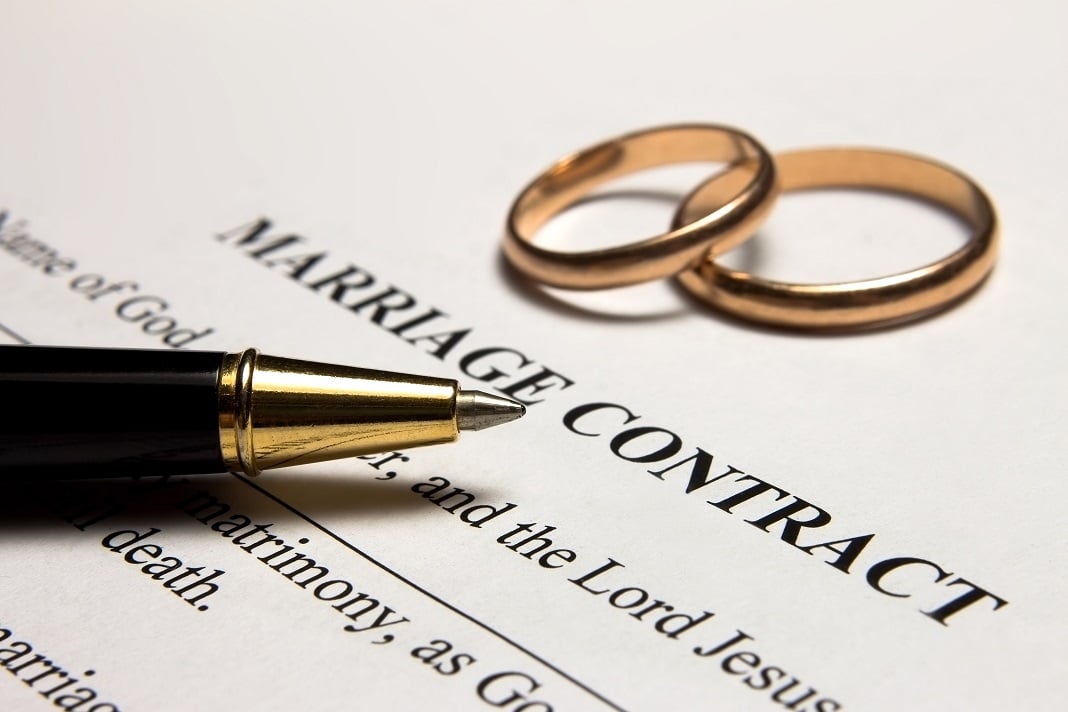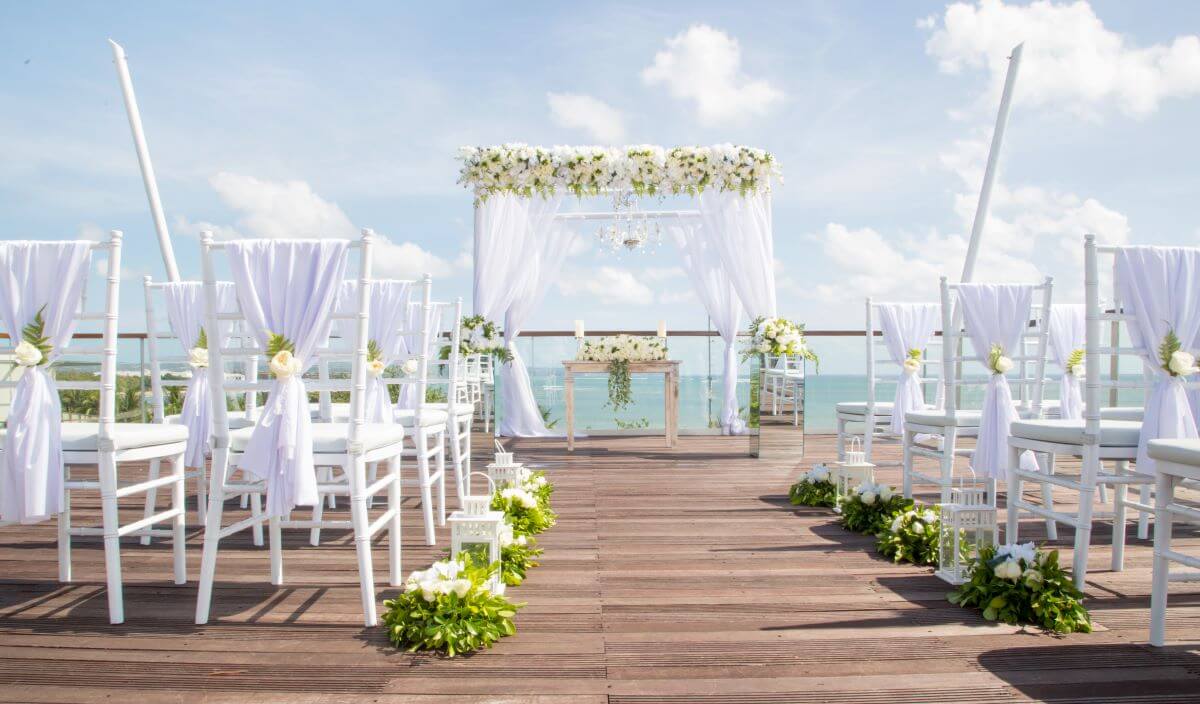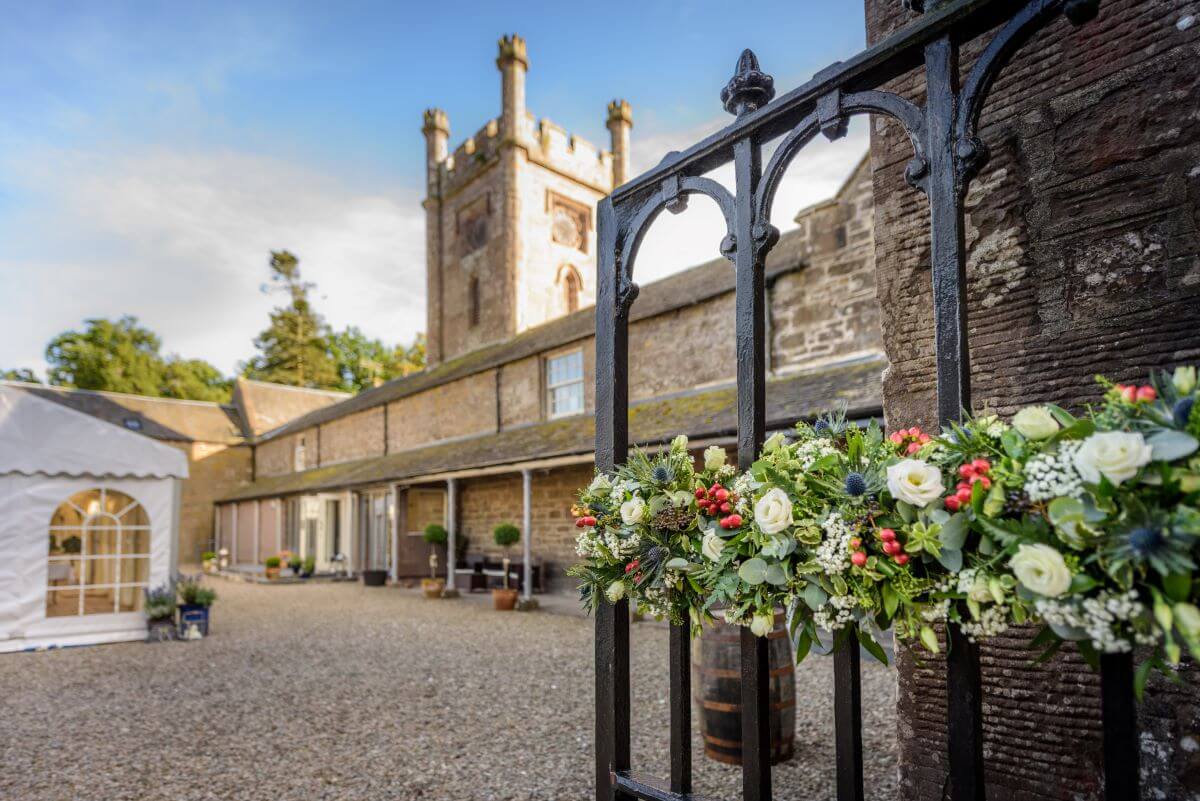Update 14th June 2021 –
The UK Prime Minister Boris Johnson announced in his 6pm press conference scheduled that the current restrictions would continue past the 21st June deadline to July 19th.
But crucially, he confirmed Weddings in England will have no guest restrictions from June 21st, and instead be limited only by venue capacity.
Social distancing and masks will still be required as per the change 17th May. For up to date details on what you can do read here.
Update 31st December 2020 –
Weddings are allowed in England based on the Tier system, with Scotland, Northern Ireland and Wales in lockdown.
The key element is 15 people can attend weddings in Tiers 1 to 3. And Wedding Receptions are allowed in Tiers 1 and 2 (currently just the Isle of Scilly)
Weddings are reported as not allowed in Tier 4 unless exceptional circumstances, but official guidance states “where possible” which is not definitive. This is for a maximum of 6 people but we would urge anyone with a wedding booked in Early 2021 to contact their venue.
The guidance is constantly changing so we advise you always refer directly to the relevant government websites:
The Government have announced further changes that took effect just after midnight today (31st December). 78% of England is now in Tier 4, where the guidance states:
Weddings and civil partnership ceremonies must only take place with up to 6 people. Anyone working is not included. Where possible, these should only take place in exceptional circumstances.
The Isles of Scilly are the only area than can have wedding receptions, as the rest of the country are in Tier 3 with weddings permitted but no receptions allowed. The guidance:
Wedding and civil partnership receptions and celebrations are not permitted to take place.
Current Tier 3 areas are:
East Midlands
- Rutland
North West
- Liverpool City Region
South West
- Bath and North East Somerset
- Bristol
- Cornwall
- Devon, Plymouth and Torbay
- Dorset
- North Somerset
- South Gloucestershire
- Wiltshire
West Midlands
- Herefordshire
- Shropshire, and Telford and Wrekin
- Worcestershire
Yorkshire and The Humber
- City of York and North Yorkshire
- The Humber: East Riding of Yorkshire, Kingston upon Hull/Hull, North East Lincolnshire and North Lincolnshire
- South Yorkshire (Barnsley, Doncaster, Rotherham, Sheffield)
- West Yorkshire (Bradford, Calderdale, Kirklees, Leeds, Wakefield)
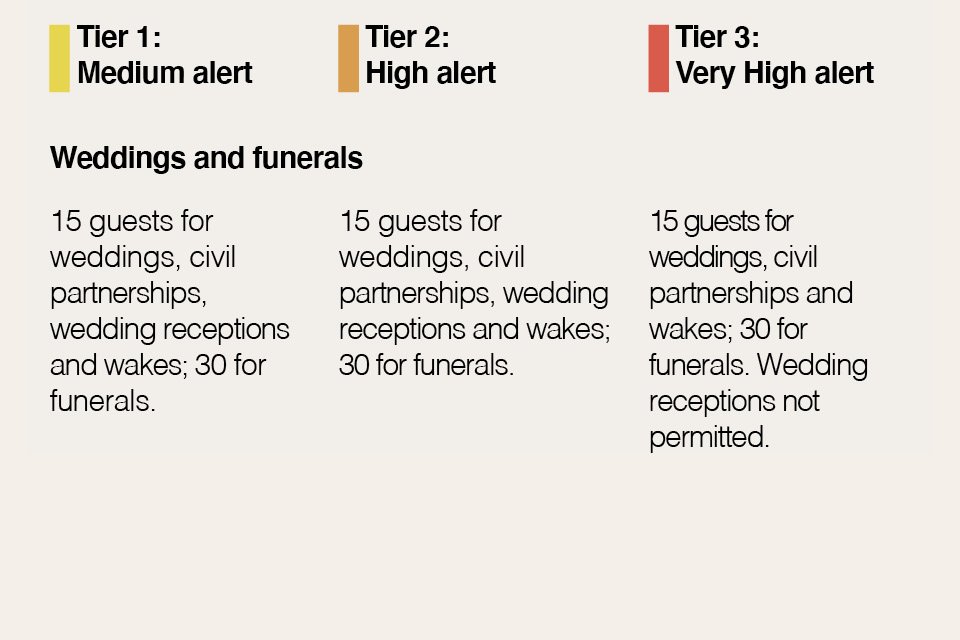
November Guidance:
The English government has confirmed the COVID-19 Winter Plan to provide a route back to normality with vaccines and rapid testing expected soon.
Short-term with the lifting of the restrictions, weddings can resume with limited guests. This continues to be tier dependant, and national allocation of this is expected on Thursday.
In summary:
TIER 1 (Medium Alert)
15 guests for weddings, civil partnerships & wedding receptions
TIER 2 (High Alert)
15 guests for weddings, civil partnerships & wedding receptions
TIER 3 (Very High Alert)
15 guests for weddings and civil partnerships. Wedding receptions not permitted.
12th October guidance:
Prime Minister Boris Johnson announced a new local three-tier Covid Alert system which impacts wedding receptions. Depending on local lockdowns, those in England in an area of very high alert status are unable to have a reception after the wedding. The official number 10 twitter feed gave out the following images with a breakdown of what is allowed on each status level.
You can check your area status and at the time of writing the follow areas are very high risk and no wedding receptions are allowed:
Liverpool City Region
- Liverpool
- Knowsley
- Wirral
- St Helens
- Sefton
- Halton
You can click on the image below for more details, and the guidelines are:
You can click on the image below for more details, and the guidelines are:
Medium/High:
Up to 15 guests for weddings and 15 for receptions.
Very High:
Up to 15 guests for weddings and wedding receptions not permitted.
Other parts of the UK were unaffected, which now means:
- In Wales, the maximum continues to be 30 guests.
- In Scotland, it is 20 guests and outdoor ceremonies are recommended.
- In Northern Ireland, small outdoor weddings are allowed based on the venue’s risk assessment.
In all cases, the maximum number given does not include venue staff or officials. Included in the maximum guest would be the couple, witnesses, guests, and any staff not employed by the venue directly like musicians, photographers and perhaps caterers.
Sit down receptions at “covid-secure” venues are also an exception of the rule of 6, but this now means also a maximum of 15 providing different households can socially distance.
Covid-19 has caused havoc with the wedding industry, and weddings were banned from 23rd March until reduced numbers were allowed. But there are still rules that have to be followed in England:
- Long Ceremonies should be avoided and no food and drink should be consumed.
- Venues must record all attendees as part of track and trace and follow guidelines on being Covid-secure including wearing masks and taking staff temperature.
- Group singing should be avoided
- A maximum of 15 can attend, only where safe to do so, and households should stay 1 metre apart.
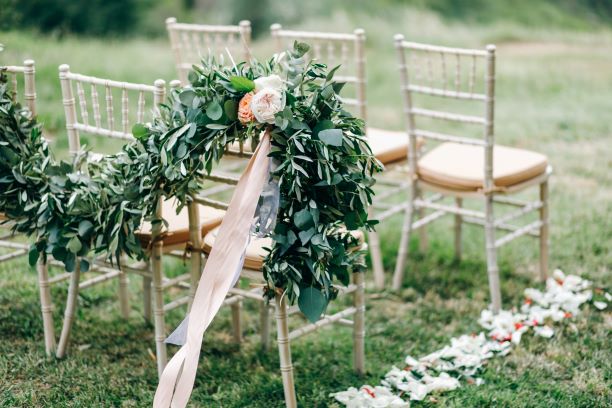
The news is a hammer blow to the Wedding Industry, particularly the entertainment and catering companies who benefit from large weddings. Let’s face it, if you are limited to 15 people, you’d be unlikely to have anyone there other than close family and friends.
But this is good news for those who want to get married on a shoe-string budget. In essence, you only need the registrar and witnesses. Most people will likely want Weddings Rings although not a legal requirement. A photographer can also be replaced with guests taking pictures. Live Music is easily replaced by speakers. Sit-down meals can be replaced with a buffet.
For those who have weddings booked for the rest of 2020 and early 2021, it is a worrying time if a further lockdown and rule changes are imminent. And I feel for those who have painstakingly planned for a 30 person wedding to be hit with having to reduce that by half.
Firstly, there is something very romantic about having a small, intimate wedding with just the people that matter. But it is crucial to understand your rights, particularly if venues and suppliers go bankrupt which is likely.
Luckily you are well covered by consumer law, insurance and the consumer credit act if you paid by credit card. And a lot of smaller independent suppliers are now beginning to understand this a lot more, and may not have acted correctly in the first instance. The Competition and Markets Authority (CMA) guidance is now widely circulated, in particular shedding more light on the law of frustration.
In summary, Consumer Law is pretty solid, you have to get what you pay for or it’s classed as goods and services not received. So if your ceremony and reception were in the time when weddings were cancelled March 23rd with lockdown, you are entitled to a refund on monies paid, minus any costs accrued (which need to be itemised with monitory value). This is regardless if a non-refundable deposit and terms and conditions do not supersede this fact.
From the point weddings were allowed again Saturday 4th July with limited numbers, most weddings were then considered to be radically different to what was arranged and also benefited from the refund requirement.
There are other avenues with Wedding Insurance, and also if you paid by credit card. If you did, you are very likely to be covered under the consumer credit act of 1974 which holds the credit card company jointly liable. This is even the case where companies have gone into administration.
This is a crucial point, as I suspect many companies will be unable to continue trading and facing bankruptcy. Limited companies cannot just cease trading if the company is insolvent. Going into administration is not closing, it’s just putting the administrators in charge. This does not change your rights.
Sole traders and partners in non-limited companies are also liable for company debts, although you might need to go to the small claims court. All registered companies should be on companies house, and most companies have the business number on the website.
Just be aware that these are unprecedented times. Those who work in the wedding industry have had very little income over the last 6 months and things are not looking rosy for the next 6. This does not alter any consumer rights, but worth bearing in mind when you communicate.



